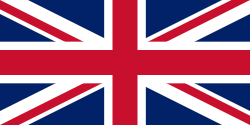| High Commissioner of British Western Pacific Territories | |
|---|---|
| Style | His Excellency The Right Honourable |
| Residence | Suva, Fiji (1877–1952) Honiara, British Solomon Islands (1953–1976) |
| Appointer | King/Queen of the United Kingdom |
| Formation | 13 August 1877 |
| First holder | Sir Arthur Hamilton-Gordon |
| Final holder | Sir Donald Luddington |
| Abolished | 2 January 1976 |
The high commissioner for the Western Pacific was the chief executive officer of the British Western Pacific Territories, a British colonial entity, which existed from 1877 until 1976. Numerous colonial possessions were attached to the Territories at different times, the most durable constituent colonies being Fiji (1877—1952) and the Solomon Islands (1893—1976). [1]
Contents
- List of high commissioners for the Western Pacific (1877–1976)
- References
- Sources and external links
The office of high commissioner never existed independently, but was always filled ex officio by the Governor of one of the constitutive British islands colonies. The high commissioners were concurrently Governor of Fiji from 1877 to the end of 1952, although the office was suspended from 1942 to 1945, with most of the islands under British military rule and others, namely the Solomon Islands, Gilbert Islands and Phoenix Islands, under Japanese occupation. From 1 January 1953 to 1976, when the office was abolished, the governor of the Solomon Islands doubled as high commissioner. On 1 January 1972, the Gilbert and Ellice Islands were taken off with their own governor. On 2 January 1976 after nearly all had been given separate statehood, the office of high commissioner and the entity of the Pacific Territories were abolished.








